Day 3
Schedule
Special Session organized by Reconciliation and Co-existence in Contact Zone (RCCZ): Solidarity, Assembly and Governance: The Peace Process in Contact Zones of East Asia
10:00 KST / 01:00 GMT
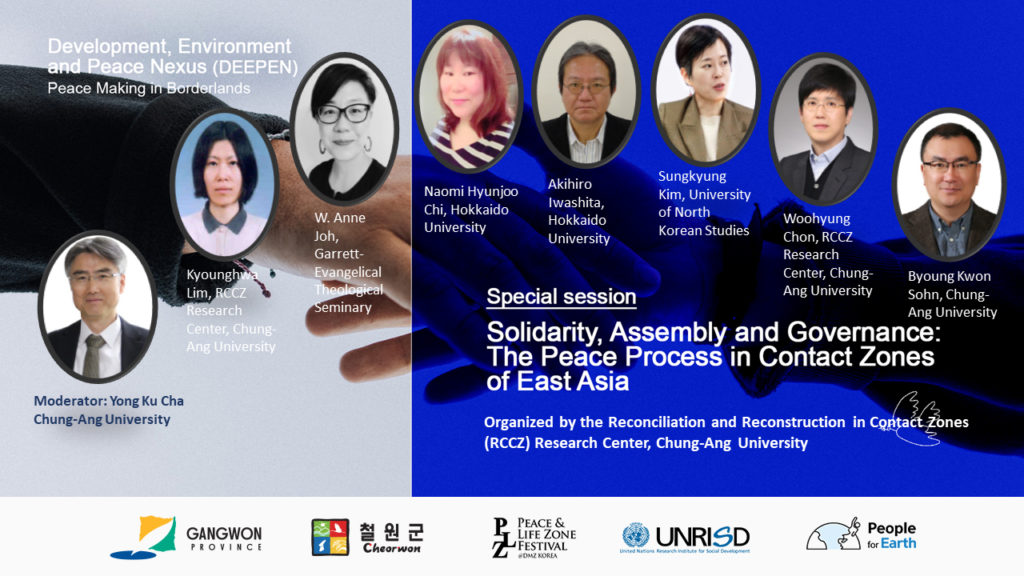
Solidarity, Assembly And Governance: The Peace Process In Contact Zones Of East Asia
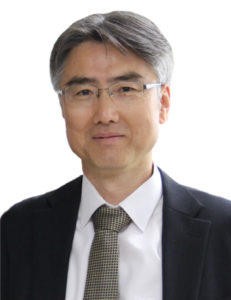
Yong Ku Cha
Professor, Chung-Ang University
Yong Ku Cha is currently a professor of the Department of History at Chung-Ang University in Seoul, Korea. He earned his PhD in medieval history from the University of Passau, Germany. His main research and teaching interests focus on border history in Medieval Europe.
He has published, among other papers, “Korea und der Islam Handelsgeschichtliche Betrachtungen zum Mittelalter”, “From ‘Frontier’ to ‘Contact Zones’ : Eastern Border Studies in the German Historiography of the Twentieth Century”, and The Borderlands of China and Korea: Historical Changes in the Contact Zones of East Asia (edited volume).
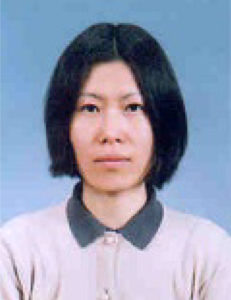
“An Unstable Island of Korean-Japanese Relationship: Focusing on Tsushima’s Transformations in the Midst of the 2019 Conflict between South Korea and Japan”
Kyounghwa Lim
HK (Humanities Korea) research professor of the Reconciliation and Reconstruction in Contact Zones Research Center
Kyounghwa Lim is HK research professor of the Reconciliation and Reconstruction in Contact Zones Research Center, Chung-Ang University, South Korea. She is in charge of publishing. She originally worked on ancient Japanese state and its court poetry. However, later she broadened her interests and shifted to modern and contemporary culture. Currently she is writing her monograph on the Japanese society from minorities’ perspectives.
Major Publications and Research
- “The Mutual Gaze of Okinawans and Zainichi Koreans in Post-War Japan: From 1945 to the 1972 Okinawa Reversion,” Japan Focus 17(8), 2019.
- “The Role of Modern Shishi Ideals in Sympathetic Japanese Appraisals of An Chunggŭn,” Acta Koreana 20(1), Academia Koreana, 2017.
- “Communist Visions for Korea’s Future: The 1920-30s,” Review of Korean Studies 20(1), 2017.
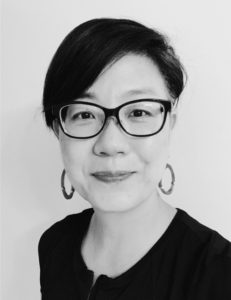
“Production of Entangled Borders: Trauma, Affect and Decolonization”
Wonhee Annette Joh
Professor, Theology and Culture, Garett-Evangelical Theological Seminary
Wonhee Anne Joh is Professor of Theology and Culture at Garrett-Evangelical Theological Seminary. She is the Director of Asian American Ministry Center as well as Faculty Affiliate in the Departments of Religious Studies and Asian American Studies at Northwestern University. Her current research is at the intersection of historical/collective trauma and affect studies, forms of de/colonial movements, and global militarism. She links her theoretical and political commitments to the intimacies of transpacific, transatlantic and internationalist feminist liberation movements and Christian praxis.
Major Publications and Research
In addition to numerous articles and chapters, she is the author of Heart of the Cross: A Postcolonial Christology and has coedited both Critical Theology Against US Militarism in Asia: Decolonization and Deimperialization, and Feminist Praxis Against US Militarism. Forthcoming from Fordham University Press is Trauma, Affect and Race.

“Development in ‘Contested’ Borderlands: Prospects and Challenges in the Northern Territories (Kuril Islands)”
Naomi Hyunjoo Chi
Assistant Professor, Graduate School of Public Policy, Hokkaido University
Naomi CHI graduated from the University of British Columbia with a B.A in Political Science. She received her M.A. and Ph.D (Political Science) at the Graduate School of Law and Politics at Hokkaido University. She is currently an assistant professor at the Graduate School of Public Policy, Hokkaido University. She is currently the Vice President (President-Elect) of the Association of Borderlands Studies (ABS).
Major Publications and Research
Her latest publication include, “Where Migration Meets Gender in Northeast Asia: Marriage Migrants and Domestic and Care Workers in Japan and South Korea,” (Annals on Public Policy, April 2018), “’Walking in Her Shoes’ : Prospects and Challenges of Marriage Migrants in South Korea” (Annals on Public Policy, March 2019), “Japan’s New Wave of Immigration?: Focusing on the Strategies of Local Government in Japan” (Annals on Public Policy, March 2020).
Akihiro Iwashita
More Info Coming Soon
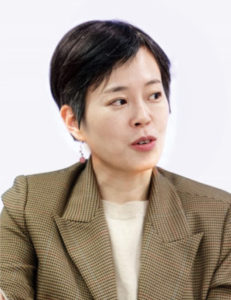
“Mobile North Korean Women and Long-Distance Motherhood: The (Re)Construction of Intimacy and the Ambivalence of Family”
Sung Kyung Kim
Associate Professor, University of North Korean Studies
Dr. Kim, Sung Kyung received her Ph.D. in sociology at the University of Essex in UK. She is Associate Professor at the University of North Korean Studies, and currently works as a deputy director of the Center for North-South Korea Mind Integration at the University of North Korean Studies. She is an editor-in-chief in Review of North Korean Studies which is a Korean Citation Index Journal (KCI) issued by Korean Research Foundation. She previously served as a lecturer in the Department of Sociology and a senior visiting fellow in Asia Research Institute (ARI) at the National University of Singapore (NUS). She is a member of Peace and Prosperity Division in the Presidential Commission on Policy-Planning and a board member in Ministry of Unification, ROK. Her research interests are North Korean mobility; Sociology of emotion and affect; cultural geography and etc. Recent publications are in the field of Asian mobility, North Korean defectors, migration studies, and cultural industry.
Major Publications and Research
- Kim Sung Kyung (2020) Divided Minds and Hearts: Social Psychology of the Division System, Seoul, Changbi (in Korean)
- Kim Sung Kyung (2020) A Cultural Question for the Division and Unification of the Korean Peninsula, Inter-Asia Cultural Studies, 21(3), London: Routledge.
- Kim Sung Kyung (2020) Mobile North Korean Women and Long-Distance Motherhood: The (Re) Construction of Intimacy and the Ambivalence of Family, Korean Studies, 44, University of Hawaii
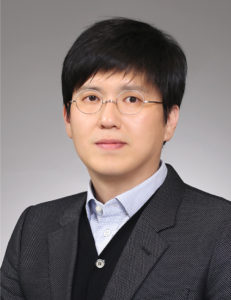
“Peace Process Implicit in the Plan of the Tumen River International City Bordering North Korea, China and Russia”
Woohyung Chon
Associate Professor, RCCZ Research Center, Chung-Ang University
Chon Woohyung (Ph.D. Seoul National University) is Associate Professor at Chung-Ang University. His research has focused on the intermediation between novel and film in modern Korea. Recently his research interest has extended to genealogical studies of literature and film representing borders and contact zones. His recent Korean language essays are “The Politics of Representation of In Between Space and Antiheros: 2019 Independence of Musical and Opera,” Critical Review of History 130, (February 2020) and “Films and Trains, Abandoned Theater of Enlightenment,” Journal of Seoul Studies 78, (February 2020).
Major Publications and Articles
- “‘Candlelight Documentary’ as the Cultural Politics of Recording and Memorizing, and the Emergence of the Candlelight Plaza,” Korea Journal 58, no. 4 (December 2018).
- “The Vernacular Aesthetics of Conte Adaptations of Western Films in Late Colonial Korea,” Journal of Korean Studies 20, no. 2 (December 2015).
- Cine-roman in Colonial Era Korea (Seoul: Somyung Publishing, 2014).
Byoung Kwon Sohn
Professor of the Department of Political Science and International Relations, Chung-Ang University
Byoung Kwon Sohn is a Professor at the Department of Politics and International Relations, Chung-Ang University in Seoul, Korea. He teaches American Politics, American Foreign Policy, and Party and Legislative Politics as a subdivision of Comparative Politics. He got both BA and MA degrees from the Department of International Relations, Seoul National University, and Ph.D. from Department of Political Science, the University of Michigan, majoring in American Politics.
Byoung Kwon Sohn published several books and articles, including Climate Change and the Dilemma for the U.S. Hegemony (2012, written in Korean), Is U.S. Congressional Politics Still a Model to Follow? The U.S. Congress Captured by Partisan Politics (2018, written in Korean), “The Superdelegate Reform in 2018 in the Context of Democratic Party’s Delegate Reform.
Special Session organized by Center For Asian Urban Societies (CAUS): Local and Sub-national Perspectives on the Sustainable and Peaceful Development in the East Asian Borderlands
13:00 KST / 04:00 GMT
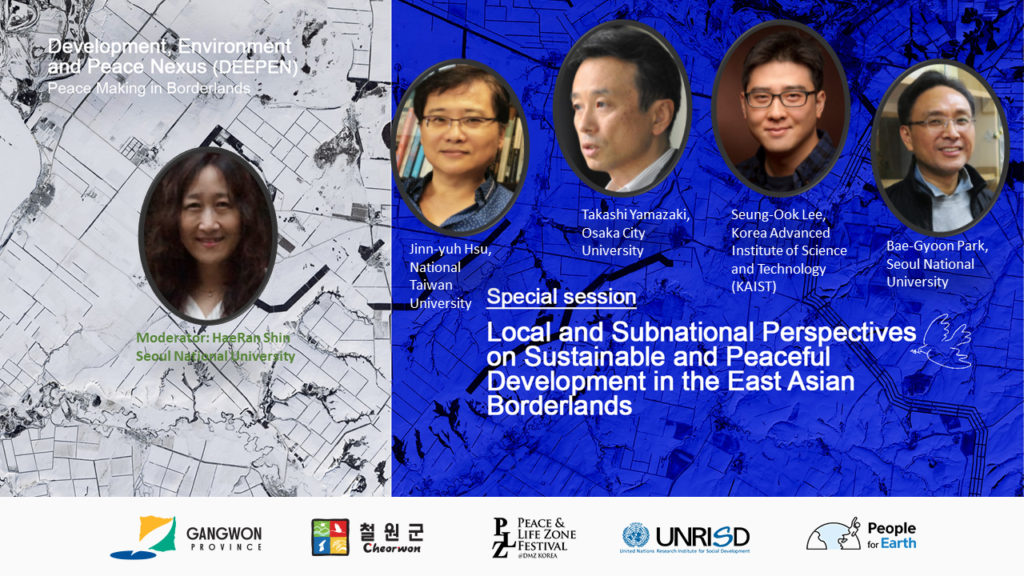
Local And Sub-National Perspectives On The Sustainable And Peaceful Development In The East Asian Borderlands
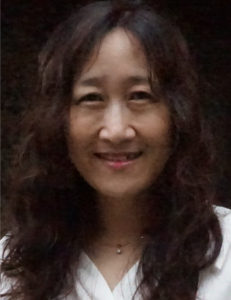
Haeran Shin
Professor, Seoul National University
Haeran Shin is a Professor in the Department of Geography at Seoul National University. She focuses on the areas of political geography and migrant studies. She has examined the politics of urban development cases, including culture-led urban regeneration, place-marketing, new towns, and smart-cities. She has also worked on the issues of transnational migrants and refugees, the dynamics of mobilities, and the territoriality of their networks and ethnic enclaves. For her research on urban politics and migrant studies, she has used qualitative research methods including in-depth interviews, participant observations, focus groups, discourse analyses, and archival analyses. In recent years, she has focused on the transnational ethnic networks of North Korean defectors who live outside the Korean peninsula. She has published a number of studies in international academic journals including Annals, Political Geography, and Urban Studies. She used to teach at University College London, and she started teaching in South Korea beginning September 2013.
Major Publications and Articles
- Shin, HaeRan, 2020. The Cultural Politics of Urban Development in South Korea – Art, Memory and Urban Boosterism in Gwangju. Routledge, New York (Monograph).
- Shin, HaeRan, 2019. Extra-territorial nation-building in flows and relations: North Korea in the global networks and an ethnic enclave. Political Geography, Vol. 74, 102047
- Shin, HaeRan, 2018. The territoriality of ethnic enclaves: dynamics of transnational practices and geopolitical relations within and beyond a Korean transnational enclave in New Malden, London. Annals of the American Association of Geographers, Vol.108(3), 756-772.
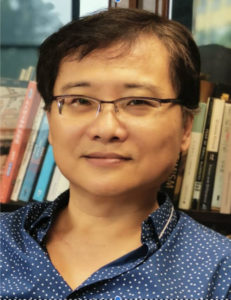
“Geopolitics and Development: the Borderwork of Kimen and Matsu Islands in the Cross-Strait Relation”
Jinn-yuh Hsu
Distinguished Professor, Department of Geography, National Taiwan University
Professor Jinn-yuh Hsu from the Department of Geography, has been working on the geopolitical economy of East Asia since he joined a large international collaborative project with scholars from Canada, UK and Korea in 2012. Basing his research on the empirical scrutiny of special zones designated by the state, primarily Export Processing Zones and Free Economy Zones, he has engaged in critical dialogues with a number of key geographical concepts, namely spaces of exception, geoeconomic power, and geopolitical security, in order to demonstrate the particularities of state transformation and spatial restructuring in East Asian Developmental States. He published his findings in flagship journals within the field of geography, such as the Transactions of the Institute of the British Geographers, and Dialogues in Human Geography. In 2019, his works earned the Ashby Prize, an international award for innovative geographical publications, and the Outstanding Research Award from the MOST in 2020.
Major Publications and Research
- Jinn-yuh Hsu (2019) “Zoning urbanization: the Hsinchu Technopolis as an enclave of modernity in Taiwan.” Pp. 91-109 in Developmentalist Cities? Interrogating Urban Developmentalism in East Asia. Eds by Jamie Doucette and Bae-Gyoon Park. Leiden: Brill Press.
- Jinn-yuh Hsu, Dong-wan Gimm and Jim Glassman (2018) “A Tale of Two Industrial Zones: A Geopolitical Economy of Differential Development in Ulsan, South Korea, and Kaohsiung, Taiwan” Environment and Planning A 50 (2): 457-473
- Jinn-yuh Hsu (2017) “State Transformation and the Evolution of Economic Nationalism in the East Asian Developmental State: the Taiwanese Semiconductor Industry as Case Study” Transactions of the Institute of British Geographers 42(2): 166-178
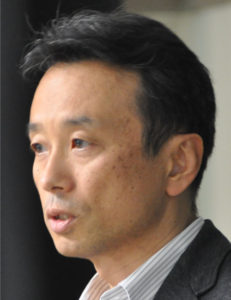
“Inter-island borderity/territoriality in East Asia: From a Japanese perspective”
Takashi Yamazaki
Professor, Department of Geography, Osaka City University, Japan
Takashi Yamazaki is Professor of Geography at Osaka City University, Japan. He received his Ph.D. in political geography from University of Colorado at Boulder in USA. His current research interest concerns the (de)militarization of Okinawa, critical geopolitics of Japanese foreign policy, and trans-border geopolitics in East Asia. He had been a Steering Committee member of the International Geographical Union (IGU) Commission on Political Geography from 2004 to 2016 and acted as a co-chair from 2014 to 2016. He has been an editorial board member of Political Geography (Elsevier), Geopolitics (Taylor and Francis), and Environmental and Planning C: Politics and Space (SAGE). He has been working for Geopolitics as a co-editor since 2018. Within Japan, he established and chaired the Political Geography Research Group of the Human Geographical Society of Japan from 2011 to 2015 and acted as a vice-chair of the Commission Committee for the IGU Kyoto Regional Conference in 2013. He is currently an associate member of the Science Council of Japan.
Major Publications and Research
- Yamazaki, T. COVID-19 pandemic in Japan: containment failed or successful? Geopolitica(s) 11 (special issue), 81-91.
- Yamazaki, T. 2018. Maritime trade and geopolitics: the Indian Ocean as Japan’s sea lane. In Robert C. Kloosterman, Virginie Mamadouh and Pieter Terhorst eds. Handbook on the Geographies of Globalization. Edward Elger, 388-401.
- Yamazaki, T. 2017. The reinstitutionalization of island identities in Japan’ in D. Kaplan and G. Herb eds. Scaling Identities: Nationalism and Territoriality. Rowman & Littlefield, 185-201.
- Yamazaki, T. 2013. Space, Place, and Politics: Towards a Geography of Politics. Nakanishiya (in Japanese).
- Yamazaki, T. 2011. The US militarization of a ‘host’ civilian society: the case of post-war Okinawa, Japan. In S. Kirsch and C. Flint eds. Reconstructing Conflict: Integrating War and Post-War Geographies. Ashgate, 253-272.
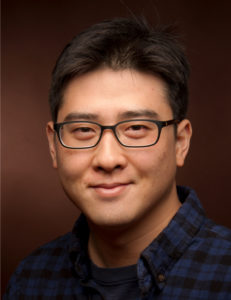
“Seeing like a border: Towards an agenda for border studies in the Korean Peninsula”
Seung-Ook Lee
Assistant Professor (School of Humanities & Social Sciences, Korea Advanced Institute of Science and Technology)
Seung-Ook Lee is Assistant Professor of the School of the Humanities and Social Sciences at KAIST(Korea Advanced Institute of Science and Technology) and Joint Researcher at Center for Asian Urban Societies of Seoul National University. His research focuses on the geopolitical economy of Northeast Asia, specifically China and the Korean peninsula. He has recently worked on political economy of US military camptowns in Korea and urban geopolitics of border cities on the Korean Peninsula. His research has been published in Antipode, Critical Asian Studies, Environment and Planning A, Geopolitics, and Political Geography.
Major Publications and Research
- Lee, S-O, Wainwright, J. and Glassman, J. 2018. “Geopolitical economy and the production of territory: The case of US–China geopolitical-economic competition in Asia” Environment and Planning A 50(2): 416-436.
- Lee, S-O. 2017. “Free trade agreements and “economic territory” as a geoeconomic imaginary in South Korea,” Critical Asian Studies 49(4): 569-586
- Lee, S-O. 2014. “The production of territory in North Korea: ‘Security First, Economy Next’,” Geopolitics 19(1): 206-226.
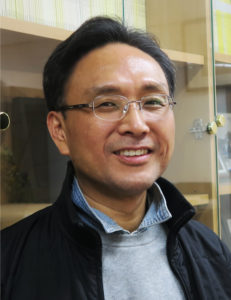
“The Role of local forces and trans-local networks for the development of peaceful geo-political economies in the East Asian border regions”
Bae-Gyoon Park
Professor, Seoul National University
Director, Center for Asian Urban Societies
Bae-Gyoon Park is a Professor and the director of Center for Asian Urban Societies at Seoul National University. He serves as an editorial board member of Political Geography, International Journal of Urban and Regional Research.
Major Publications and Research
- Park, Bae-Gyoon, Lee, Seung-Ook, and Chi, Sang-Hyun 2019 New Geo-politics in the Korean Peninsula: A New Imagination of Border, Division and Re-unitification (in Korean). Seoul: Hanul.
- Doucette, Jamie and Park Bae-Gyoon 2018 Developmentalist Cities? Interrogating Urban Developmentalism in East Asia. Brill.
- Park, Bae-Gyoon, Hill, Richard C., and Saito, Asato 2012 Locating Neoliberalism in East Asia: Neoliberalizing Spaces in Developmental States. Oxford: Blackwell.
Session VII Closing Session (Roundtable)
15:00 KST / 06:00 GMT
This roundtable will summarize the discussions and highlight the lessons and findings from the discussions. It invites policymakers of the Republic of Korea and representatives of UN agencies in the Republic of Korea and the Democratic People’s Republic of Korea to discuss the challenges and opportunities of North-South Korean cooperation and feasible policies and institutions facilitating integrated approaches to peace within and beyond DMZ.
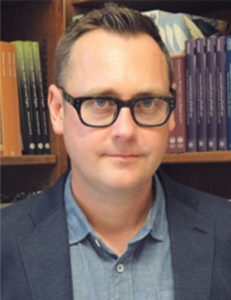
Paul Ladd
Director
Paul Ladd has been Director of UNRISD since October 2015. Before taking up this position he had been at UNDP, where he had most recently been Director of the team supporting consultations and technical inputs for the 2030 Development Agenda.
Previously he led UNDP’s policy team on ‘inclusive globalization’ – including trade, development finance, and migration. From 2008-2009, he provided support to the Office of the UN Secretary-General on the financial and economic crisis, and engagement with the G20.
Before moving to New York, Paul was a policy adviser on international development for the UK Treasury, including the period building up to and through the UK’s Chair of the G8 and European Union in 2005.
Previously he had been Chief Economist and acting Head of Policy with UK charity Christian Aid, the UK Department for International Development’s economic adviser for South Africa, Botswana, Lesotho, Namibia and Swaziland, and a financial adviser in the Central Bank of Guyana.
Paul received his BSc in Economics and his MSc in Quantitative Development Economics from the University of Warwick. In 2016 he was awarded an Honorary Doctorate in Law (LLD), also by the University of Warwick.
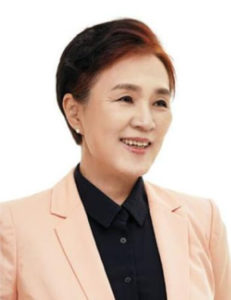
Kumsil Kang
Executive Director, People for Earth
Chief Director, Sun Probono Center
Managing Partner, One Law Partners, LLC
Kumsil Kang has served as the 55th Minister of Justice of Republic of Korea. She is currently the Executive Director of People for Earth since 2015. She has published ‘Politics of Life’ in 2012, and she is now the member of the Advisory Committee of National Council on Climate and Air Quality. In 2020, she has co-written a book, ‘Earth Jurisprudence’ with 6 lawyers from People for Earth.
So-young Lee
Member of National Assembly
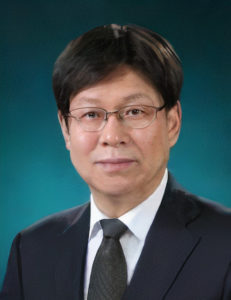
Kwang Gil Kim
Director General for Inter-Korean Exchange and Cooperation Office
Kaesong Industrial District Management Committee(KIDMAC), Legal Affairs Team Leader
The Presidential Committee on Northern Economic Cooperation, Committee member
University of North Korean Studies, adjunct professor
JIPYONG LLC, Lawyer
Jeong-kwon Byeon
Director of Peace Region Progress Headquarters
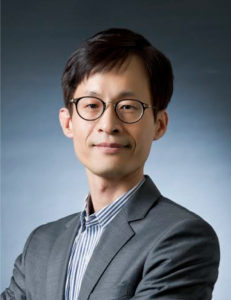
Byong Jin Ahn
Professor, Global Academy for Future Civilizations
Board of Director, Nanum Munwha
(Former) The Graduate School of Education
(Former) Rector, Global Academy for Future Civilization
(Former) Policy Advisor to President’s Office, Kyung Hee University
(Former) Vice President, Kyung Hee Cyber University
(Former) Columnist for Hankyoreh Daily Newspaper Ph.D. Political Science, New School for Social Research
Books and Articles
- Trump, Complete Collapse (Three Chairs, 2019)
- Destined for Crisis (Modern Times, 2018)
- Changing Faces of American Politics (Medici, 2016)
- The Roots of Crisis of Democracy and Conservatism after Democratization (Pulbit, 2008)
Sangmin Nam
Deputy Head of UNESCAP Subregional Office for East and North-East Asia
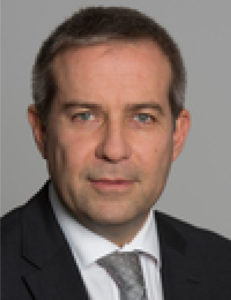
Stephan Johannes Klingebiel
Director, UNDP Seoul Policy Centre, Republic of Korea
Dr. Stephan Klingebiel (Germany) took up his post as Director of the UNDP Seoul Policy Centre in June 2019. He was previously the Chair of the Research Programme “International and Transnational Cooperation” of the German Development Institute (Deutsches Institut für Entwicklungspolitik / DIE). Before he joined DIE in 1993 he was researcher at the University of Duisburg (Institute for Development and Peace). He was Founding Director (2007 – 2011) of KfW Development Bank office in Kigali, Rwanda dealing with development cooperation topics. His research and university teaching focuses on innovations for transnational cooperation, political economy of aid, aid & development effectiveness, global public goods, rising powers, and governance issues in sub-Saharan Africa. As a guest researcher he developed close links with the Center on Democracy, Development, and the Rule of Law (CDDRL) at Stanford University and the College of Humanities and Development Studies at the China Agricultural University (CAU) in Beijing. Stephan Klingebiel is Senior Lecturer at the University of Marburg and a regular Visiting Professor at Stanford University (Bing Overseas Studies Program, Cape Town).
Major Publications and Research
- Klingebiel, S. (ed. with S. Chaturvedi, H. Janus, A. de Mello e Souza, E. Sidiropoulos, D.Wehrmann, Li Xiaoyun) The Palgrave Handbook of Development Cooperation for Achieving the 2030 Agenda: Contested Collaboration, Handbook, Palgrave Macmillian (November 2020, in print)
- Klingebiel, S. (with V. Gonsior, F. Jakobs and M. Nikitka) Results-Based Approaches: Strengthening public sector performance in Rwanda and implications for development cooperation, Palgrave Macmillan, Basingstoke 2016
- Klingebiel, S. (ed. with M. Negre and T. Mahn) The fragmentation of aid: Concepts, measurements and implications for development cooperation, Palgrave Macmillan, Basingstoke 2016
- Klingebiel, S.; Development Cooperation: Challenges of the New Aid Architecture, Palgrave Macmillan, Basingstoke 2014
- Klingebiel, S. (with N. Keijzer & F. Scholtes) Promoting ownership in a ‘post aid‐effectiveness’ world: evidence from Rwanda and Liberia, in: Development Policy Review, Volume 38, Issue S1, May 2020
- Klingebiel, S.; (with V. Gonsior, F. Jakobs and M. Nikitka) Where tradition meets public sector innovation: A Rwandan case study for Results-Based Approaches, in: Third World Quarterly, 2019, 40:7, 1340-1358, DOI: 10.1080/01436597.2019.1581571
- Klingebiel, S.; Transnational public goods provision: the increasing role of rising powers and the case of South Africa, in: Third World Quarterly 39 (1), 2018
- Klingebiel, S. (with K. Roehder): Interfaces between Development and Security: Converging the Role of Development Policy and Security Policy?, in: H. G. Brauch, J. Grin, C. Mesjasz, P. Dunay, N. Chadha Behera, B. Chourou, U. Oswald Spring, P. H. Liotta, P. Kameri-Mbote (eds.), Globalisation and Environmental Challenges: Reconceptualising Security in the 21st Century, Hexagon Series on Human and Environmental Security and Peace, Vol. 3, Berlin / Heidelberg / New York 2008
- Klingebiel, S.; Peace and Security Policy of the African Union and the Regional Security Mechanisms, in: B. Gebrewold (ed.), Danger Africa – Fortress Europe, Aldershot / Burlington 2007
- Klingebiel, S.; Regional Security in Africa and the Role of External Support, in: The European Journal of Development Research, Vol. 17, No. 3, September 2005
Hyoung-Joon Lim
Director, UNWFP Korea Office, Republic of Korea
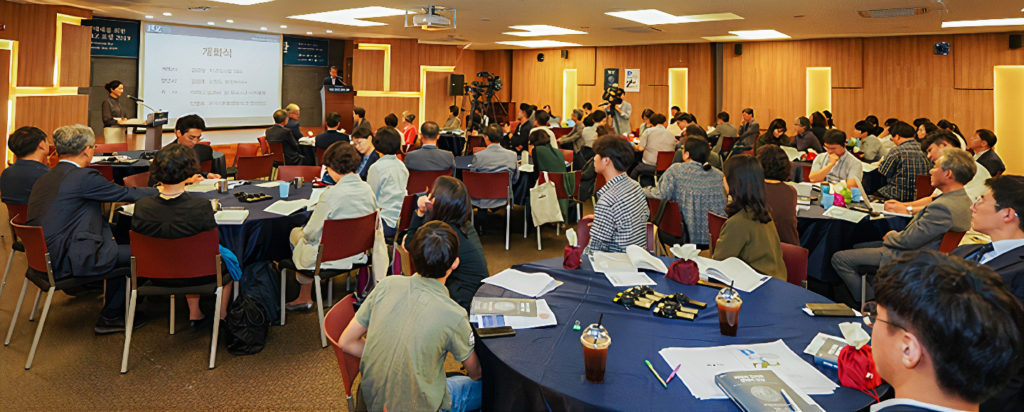
Register To Get The Online Conference Link
Are you interested in attending the conference online? Please register to get the online access link for the conference.